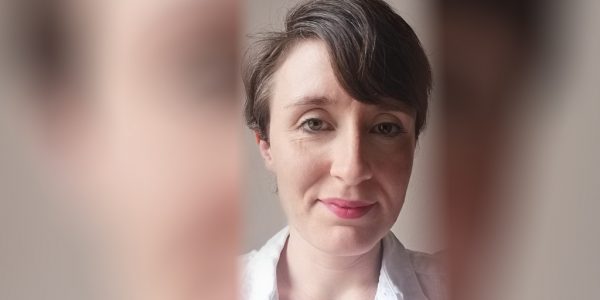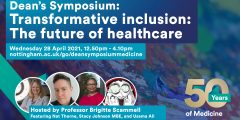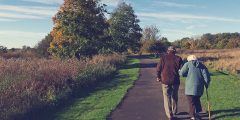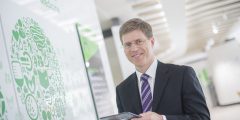50 at 50: Developing as an Early Career Researcher
May 14, 2021
I took a relatively untraditional journey to the University of Nottingham’s School of Medicine. Starting with an undergraduate degree in Musicology, I shifted to Psychology for my PhD, and when the opportunity arose to move to Nottingham’s Hearing Sciences department a few years later, I jumped at the chance. My interests have always centred on …
50 at 50: The experience of undertaking CP1 during the Covid-19 pandemic
May 7, 2021
Clinical placement is a time for us medical students to put into practice all of the skills and academic knowledge we have learnt to date. Additionally, it is a time to realise that when you’re asked a question when you first start on the wards, no matter how simple it is, your mind will go …
50 at 50: The Dean’s Symposium: Transformative inclusion: The future of healthcare
April 30, 2021
Celebrations of 50 years of Medicine and 30 years of Nursing at Nottingham are in full swing. The Dean’s Symposium on Transformative Inclusion was held on the 28 April and it was a fitting part of these events. The programme included three speakers talking about three very different but thought–provoking subjects. The virtual event began with a warm welcome from Professor Brigitte Scammell, Dean of Medicine and Head of School to …
The Dragon In My Skin: book, animation, and resource pack for schools to raise awareness about life with eczema and encourage self-care
April 26, 2021
Stephanie Lax from the Centre of Evidence Based Dermatology has been proud to work with Professor Fiona Cowdell and colleagues from the School of Education at Birmingham City University (BCU) and local professional orchestra Sinfonia Viva on an artistic outreach project resulting in a children’s book, film, and resource pack for Key Stage 1 teachers. …
50 at 50: Transforming health care of older people
April 23, 2021
I’ve been in Nottingham for 30 years, and was in touching distance of those who were there at the start of Nottingham medical school. I find it astonishing to reflect on the transformation I witnessed or heard about first hand. I am told that one of the reason for the medical school was the awful …
50 at 50: Coping with Illness in the Digital Era: The Role of Online Peer Support
April 16, 2021
It was back in 2003 when my academic career took an unexpected turn. Everything was ticking along very nicely when I started to notice some odd symptoms. Like many people, I thought nothing of it and continued about my day-to-day business. However, things quickly deteriorated and soon I had become really very ill. Whilst those …
50 at 50: UoN First Responders Milestone Achievement
April 12, 2021
An initiative set up in 2014, the University of Nottingham First Responders is a scheme consisting predominantly of medical students, some of whom continue responding in their F1 year. We volunteer to support East Midlands Ambulance Service (EMAS) in responding to high-level emergency calls, including cardiac arrests, seizures, and paediatric patients. Our scheme is very …
50 at 50: Reflections on my time at Nottingham Medical School: Achieving excellence in primary care and applied health research
March 29, 2021
My first memory of Nottingham Medical School was attending for interview for a medical school place in 1980. To my mind Nottingham had the most exciting progressive course in the country, and I particularly liked the emphasis on medicine in the community. At interview Professor Richard Madeley asked what I would do if I had …
50 at 50: Graduate Entry Medicine, A Different Kind of Freedom
March 19, 2021
Medicine was almost a spur of the moment choice for me, I don’t quite want to say an epiphany. I hadn’t given it any thought at all until I virtually stumbled across the concept of Graduate Entry Medicine during a rather drawn out period of soul- and job searching in my late twenties. I still …
50 at 50: Women in Medicine – Pain Inequality: A Healthcare Bias
March 12, 2021
Although we are fortunate in the UK to be protected by the NHS, we unfortunately still are plagued with implicit biases which can be detrimental to the beneficence of patients. Healthcare inequality is a broad term used to call attention to the way medicine is unjustly researched, practised, taught and highlighted to the public. The term ‘bias’ is used to refer implicit stereotypes, prejudices and raises …










